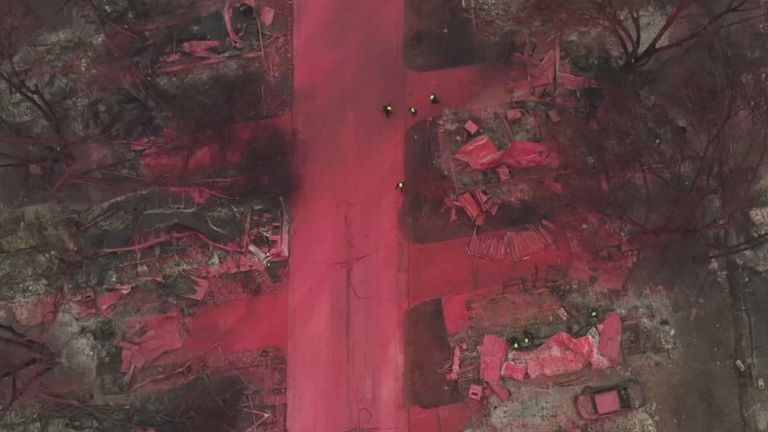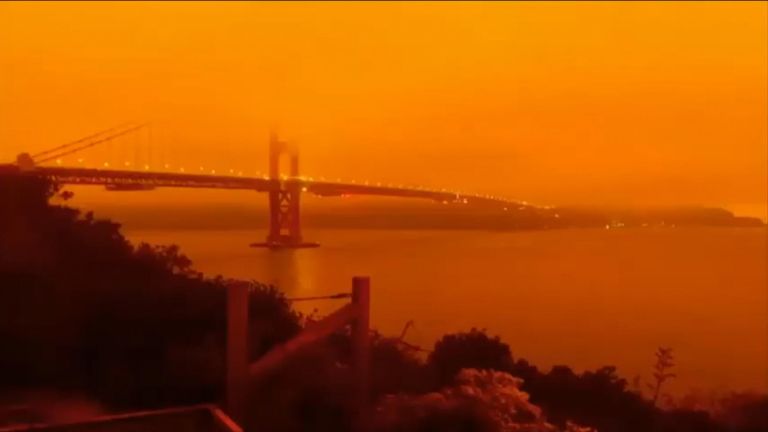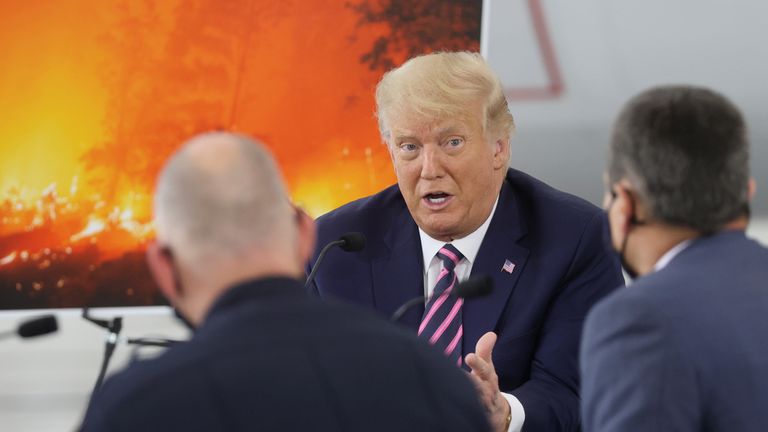Researchers say thousands of people have died prematurely as a result of the record-breaking wildfires that have swept America’s west this autumn.
An unprecedented number of major fires have burned millions of acres in California, Oregon and Washington this year, throwing up choking smoke and sending air pollution across the country and beyond.
At times, air quality readings have registered off the charts.
Researchers at Stanford University in California say spikes in the sort of particulate pollution caused by wood smoke are likely to have increased hospitalisations and deaths among vulnerable populations.
They estimate there were between 1,200 and 3,000 excess deaths in California alone in one 40-day period in the late summer.
It confirms what many scientists around the world believe is the real and growing threat from intensifying wildfire seasons.
“There’s a fair amount of evidence worldwide that air pollution is a significant risk factor for early death,” said Ed Avol, a professor of clinical preventive medicine at the University of Southern California’s Keck School of Medicine.
“So, the fact that we have these intense smoke episodes and that it pushes some susceptible people over the edge is not surprising at all.”
For him, the increasing number and intensity of wildfires is further evidence of the impact of climate change and the need for urgent action.
Selene Zazueta does not need science to tell her how bad the fires have been. For her daughters, Emma and Isabella, their asthma and allergies have been almost unbearable this year.
“It is like an oven and you really feel the dirty air,” said Selene.
The family live in a part of Long Beach in California that was already known as “asthma alley”. The fires have made it worse: “It has been overwhelming and very scary.”
Selene said it was “heartbreaking” to see her children not be able to enjoy life, but added: “Even children without asthma are suffering, this air quality is affecting every child.”
This year’s fires have seen a wave of new air quality apps launched for the public to track the particulate count in their neighbourhoods.
Americans have also seen their president continue to deny the science on wildfires, telling a meeting of emergency responders in October that “I don’t think science knows actually”. His successor Joe Biden has promised an ambitious climate change agenda.
Perversely, the pandemic has probably eased the problems for many children by keeping them indoors and away from effects of the smoke. Doctors say it will be short-term relief with a future of more toxins.
Paediatrician Dr Elisa Nicholas, who runs The Children’s Clinic and campaigns to highlight the risks of air pollution, said: “It is hard to accept the thought of having children exposed to more pollutants.
“We have worked really hard on air quality and to have a new type of air pollution coming in is heartbreaking. To me it is a backward step and that makes me sad.”









